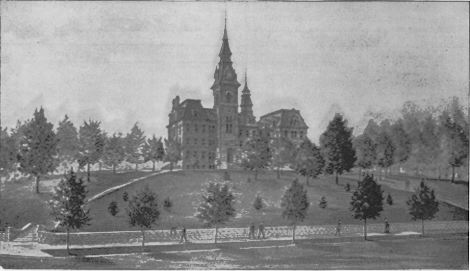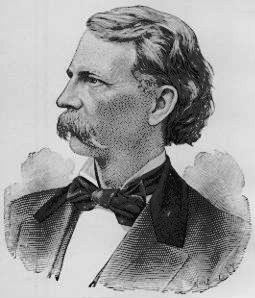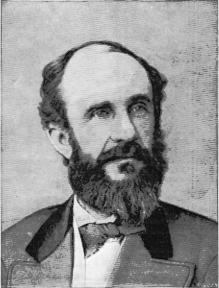|
Governor
Cuming designated Omaha as the place for the first meeting
of the Legislature, notwithstanding the opposition of
several other towns, prominent among which was Bellevue. The
governor of course incurred the enmity of all other
aspirants for the capital. The Legislature convened at Omaha
January 16, 1854, in the State House which had been built by
the ferry company. The first Legislature was composed as
follows: 
INTERIOR ALL SAINTS CHURCH. Folsom, Tekamah, door-keeper; B. R,
Folsom, Burt county; J. C. Mitchell, Washington county; M.
H. Clark, Dodge county; T. G. Goodwill, A. D. Jones, O. D.
Richardson, S. E. Rogers, Douglas county; Luke Nuckolls,
Cass county; A. H. Bradford, H. P. Bennett, C. H. Cowles,
Pierce, now Otoe county; Richard Brown, Forney, now Nemaha
county. |
|
sole commissioner to locate the capitol
building. He finally made the location on Capitol Hill, the
site being now occupied by the high school building. The
following summer Mr. Mitchell sold at auction sixty lots in
Omaha for about $60 each. Through the capital fight
Omaha's 
THE OMAHA HIGH SCHOOL.
In January, 1855, U. S. Marshal, Mark W. Izard, was appointed Governor to fill the vacancy caused by the death of Governor Burt. An executive ball was given in honor of Governor |
||||||
|
|
|
|

